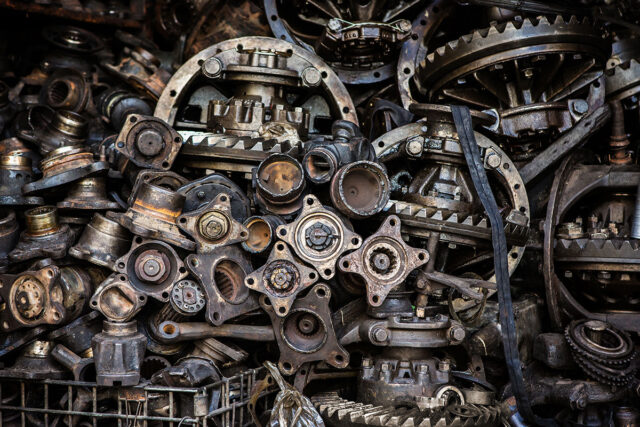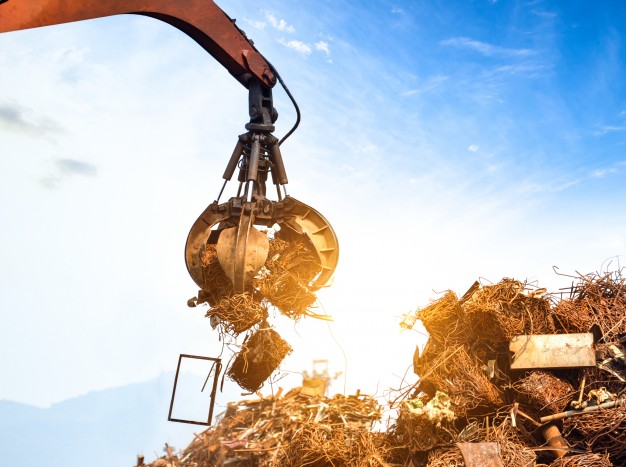
Accumulating machinery is something that plenty of businesses do over time, whether as a result of regular upgrades making legacy equipment outdated, outsourcing rendering it obsolete, or faults arising that necessitates repair or replacement.
The main problem with this state of affairs is that unused equipment that is lying dormant will be costing you cash to house, as well as monopolizing space that could be put to more productive use.
Thankfully there are a number of ways to offload old gear and reclaim the area it occupies on your premises. Here are just a few of the options to consider when you want to put unwanted equipment out to pasture.
Sell your machinery via an online marketplace

Recouping some of the residual value of aging equipment is possible if you decide to sell it, although there are plenty of pitfalls associated with making it available privately which put off some business owners.
Thankfully the rise of web-based used machinery marketplaces, such as Revelation Machinery which connects buyers and sellers on their site, means that organizations of all sizes can shift second-hand kits quickly, efficiently, and without the usual stresses.
Of course, if you want to get the best price for your equipment on a marketplace site, and attract interest from as many prospective buyers as possible, then it makes sense to ensure that the unit in question is in working order. This will be straightforward if you have been using it until relatively recently, although machines that have been static for protracted periods may need some maintenance and repair work to bring them up to scratch.
Most importantly of all, make sure that you are honest in your listings on marketplaces, describing the true condition of the equipment, outlining any perks and features, as well as whatever foibles and flaws it may exhibit. Being open about wear and tear will ensure that you can have as smooth a sales experience as possible, while also gaining the trust of the platform and its users. This is relevant because you will likely need to sell more machinery in the future, and it is better not to burn your bridges on your first interaction with a marketplace.
Get in touch with a scrap dealer & arrange a collection

In some cases, it may be impossible or simply uneconomical to repair and refurbish old machinery that has been left to gather dust and accrue rust. When the cost of fixing it up outweighs the resale value, it will need to be scrapped, and this can be a surprisingly rewarding option depending on the size and nature of the unit in question.
Larger, older equipment tends to be more mechanical in its design, which means that there is plenty of metal locked up within its various components. Certain scrap metal dealers will be willing and able to make you an offer for the scrap value of old equipment because of this, although there are a few caveats to keep in mind.
Firstly, remember that not all dealers will actually want to work with used equipment, or have the ability to, in which case their offers may be uncompetitive. This is why getting several quotes rather than just one is a good idea before you make a commitment, as it will give you a feel for which offers are actually worth accepting.
Secondly, you should aim to only contact reputable, accredited scrap metal dealers, as you will likely be concerned about the sustainability of the dismantling and recycling process. There are various industry standards that need to be met, and only established firms that have been independently vetted will let you guarantee that your own ambitions for eco-friendly equipment disposal are met.
Finally, remember that in certain cases, scrapping your machinery will actually cost you cash. This may sting, but if it is the only option, it has to be considered from the angle that to hang onto the old equipment will be more expensive in the long run than paying to part ways with it right now.
Make a donation

If you are feeling especially altruistic, you could donate your old machinery rather than selling it, and this could be a great way to bolster the reputation of your own business and generate some positive publicity without having to pay for the privilege.
Obviously, you should only aim to donate equipment that is in working order, and this may not be possible for every business in every industry. However, if it does gel with your specific situation, a machinery donation to a non-profit organization could be ideal.
Another point worth noting is that your second-hand machinery might be of historical significance if it is old and obscure enough. In this case, it could be accepted as a donation by a museum, whether or not it is still functional. This could solve a lot of issues, but is only applicable in very specific cases where equipment has been out of use for decades.
Offer it at auction

In the case of handling private machinery sales by aforementioned online marketplaces, you can set the asking price and field offers from prospective buyers, remaining in control of proceedings and only going through with a sale if you are happy with every aspect.
However, if you want to get rid of old equipment and generate cash, without necessarily needing to wait days, weeks, or months for someone to bite, a used machinery auction could be your best bet.
These are operated both at physical venues and via the internet, so you can pick the route that best suits you depending on where your business is based and what operations are available in your region.
You can still set a reserve price on equipment so that you do not get seriously undercut if there is not enough interest on the day, and you could get lucky and find that there is a bidding war for some sought after bit of kit.
Whichever path you choose to tread to unburden yourself of unused, unwanted machinery, make sure to compare all of the options thoroughly to avoid being dissatisfied with the results.












